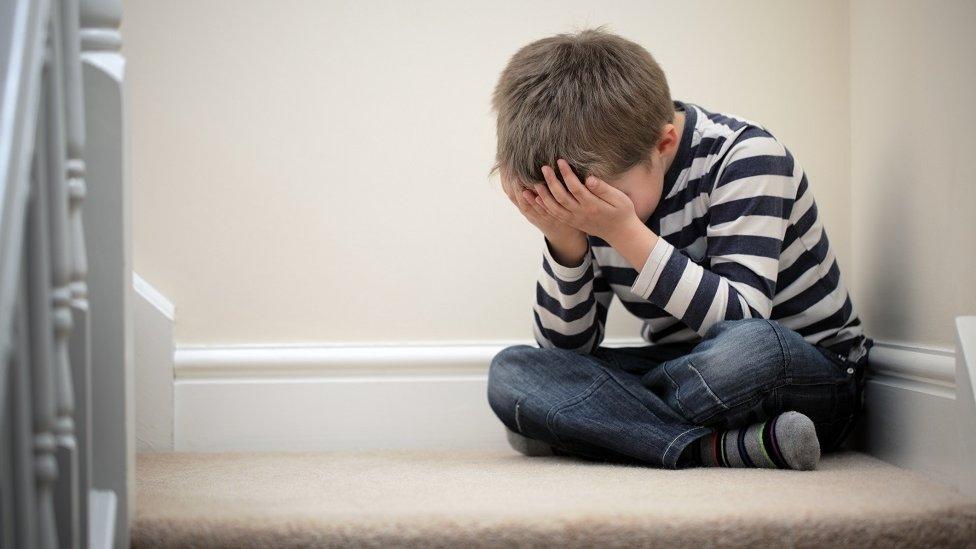Scottish smacking ban consultation opens
- Published
- comments
The consultation runs until 4 August
Proposals to ban parents in Scotland from smacking their children have been opened up for public consultation.
The move is ahead of a proposed member's bill in the Scottish Parliament which aims to give children equal protection from assault.
It has been put forward by Highlands and Islands Green MSP John Finnie.
It is backed by a number of children's charities, as well as the Association of Scottish Police Superintendents. The consultation will run until 4 August.
'Healthy relationships'
Mr Finnie said: "Scotland cannot be thought of as the best place in the world for children to grow up while our law gives children less protection from assault than anybody else in society.
"There is clear evidence that the use of physical punishment is detrimental to children's long-term health and wellbeing.
"Parents know how important it is to build strong, healthy relationships with their children. We can see from both international evidence and what families here tell us that physical punishment can prevent this.
"It makes a child's behaviour worse and can lead to increased conflict between children and parents."

Law on smacking
In England, Wales and Northern Ireland there is no ban on smacking and parents are allowed to use "reasonable chastisement".
However, hitting a child so hard that it leaves a mark, or causes bruising, swelling cuts, grazes or scratches could result in criminal charges.
Under Scottish law, parents can claim a defence of "justifiable assault" when punishing their child.
But section 51 of the Criminal Justice (Scotland) Act 2003 prohibits the use of an "implement" in the punishment.
It also bans parents from shaking their child or striking them on their head.

The MSP added that giving children full protection against assault would send a "clear message" and would underpin Scotland's efforts to reduce violence across the whole of society.
In April, Scotland's outgoing children's commissioner, Tam Baillie, renewed his call for a ban on smacking children.
Mr Baillie said the UK was one of only five European countries which did not fully protect children from physical punishment.
He also claimed that even children in Zimbabwe were better protected than those in Scotland.
'Wrong example'
The United Nations urged the UK in 2015 to introduce laws to ban smacking in the home.
A group of academics have also called for a ban in Scotland after finding "compelling" evidence that the practice creates a cycle of violence that carries on into adulthood.
The Reverend David Robertson, a moderator at the Free Church of Scotland, believes a new law is unnecessary.
Speaking on BBC Radio Scotland's Good Morning Scotland programme, he said: "This is going to criminalise good parents, just for tapping their child on the hand.
"It is also completely illogical. Mr Finnie says children should have equal rights, and calls it 'assault', but does that mean he wants to ban all forms of punishment of children?
"We don't treat children like adults - sending a child to their room, depriving them of their mobile phone, making them go to school - is Mr Finnie suggesting that all these punishments be banned because it is not equal to adults?"
Speaking on the same programme, Mary Glasgow from the charity Children 1st, said: "We know from our national Parentline service across Scotland that many parents contact us to say that they have been under pressure, they've lost their temper, they have assaulted or smacked or hit their child, feel bad about it, and they know that it makes no difference to behaviour.
"It is not an effective, or useful, tool."
A Scottish government spokesman said: "The Scottish government does not support physical punishment of children. We have no plans to introduce legislation in the area, but we will consider carefully the member's bill that we understand John Finnie intends to introduce.
"We continue to support positive parenting and we recognise that physical punishment can set children the wrong example and is not an effective way to teach children discipline."
- Published15 April 2017

- Published20 November 2015

- Published24 July 2015
